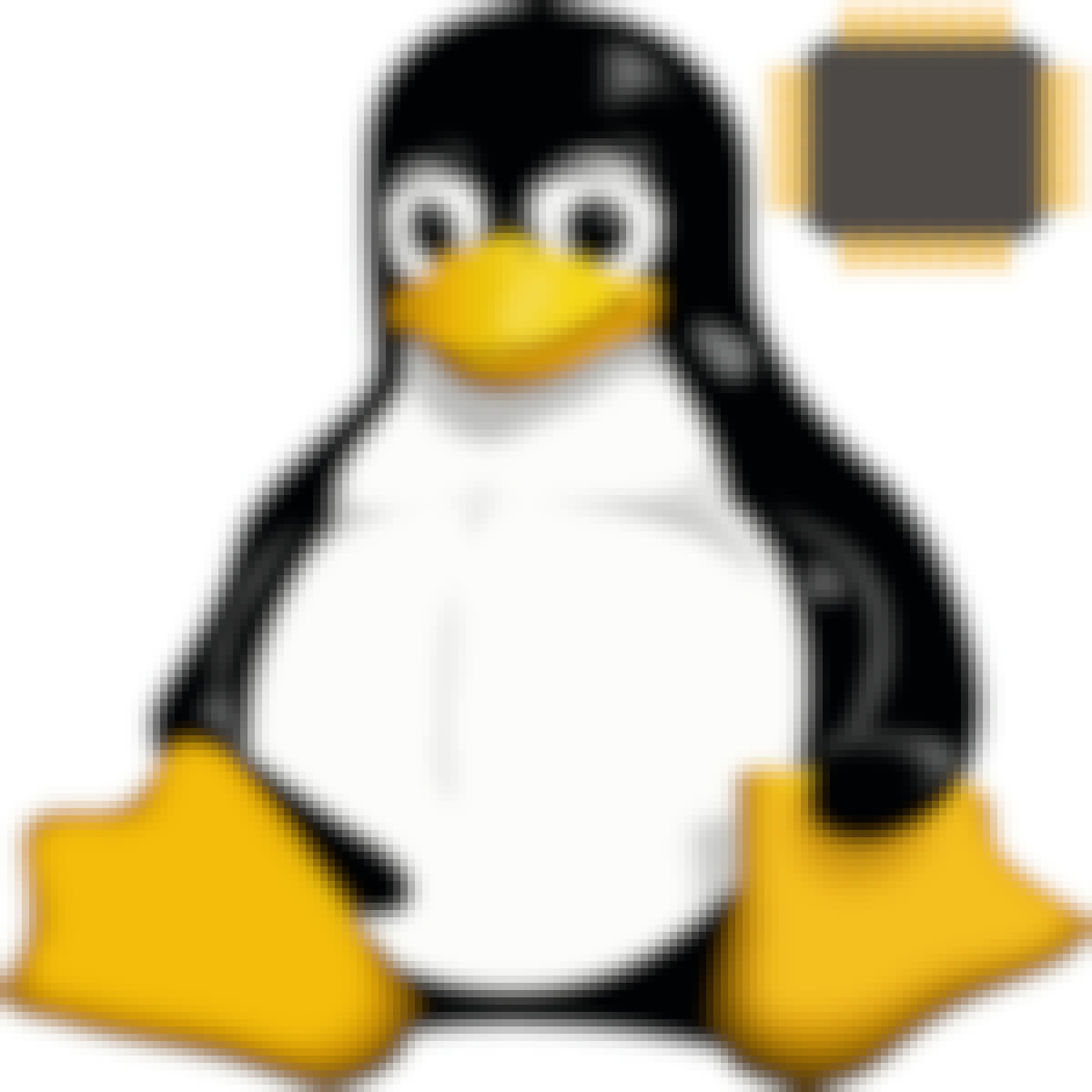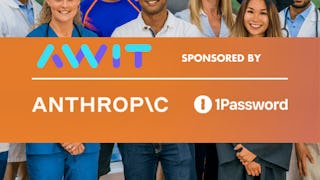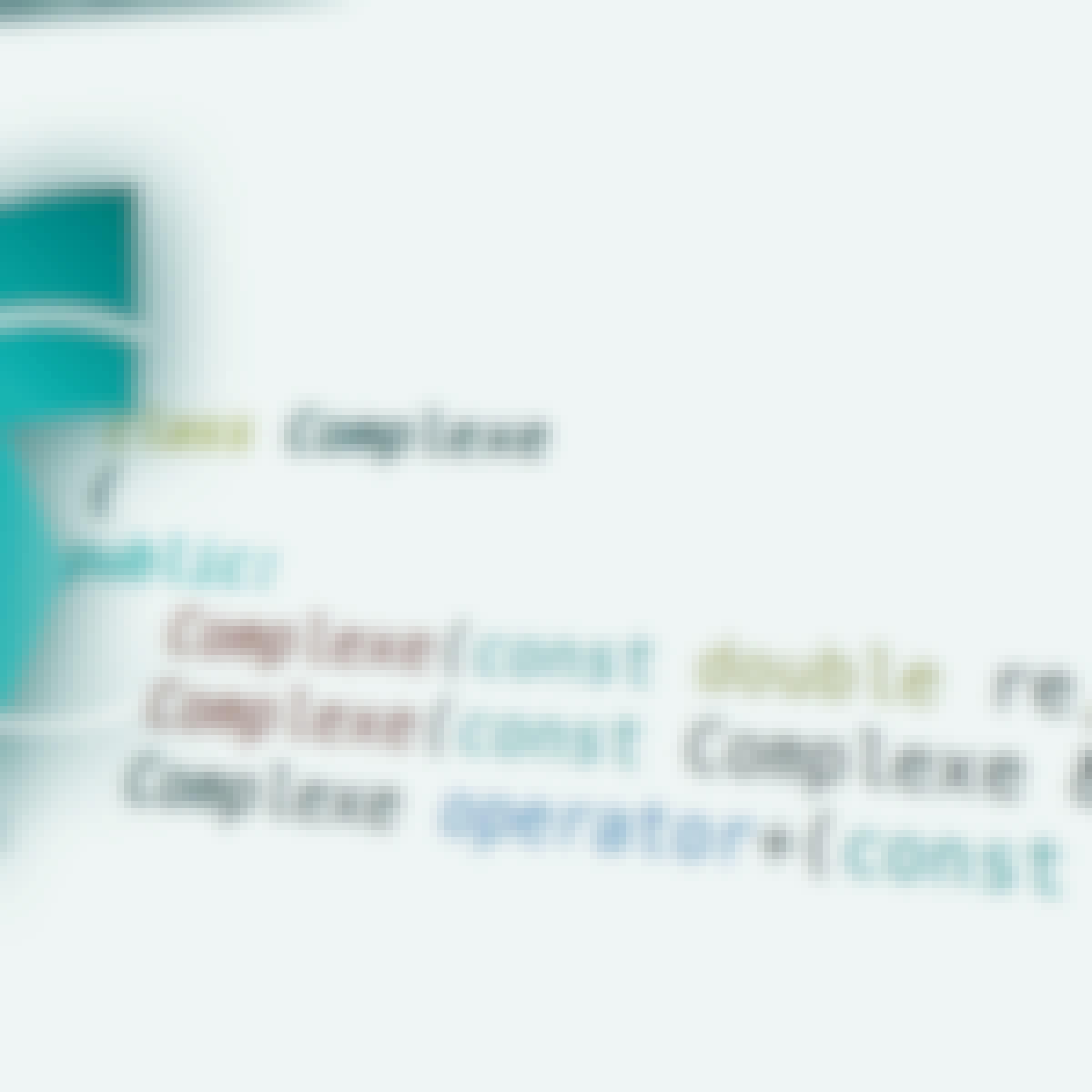- Browse
- Objective C
Objective C Courses
Objective-C courses can help you learn the basics of object-oriented programming, memory management, and the Cocoa framework for macOS and iOS app development. You can build skills in creating user interfaces, handling data with Core Data, and integrating APIs for enhanced functionality. Many courses introduce tools like Xcode for coding and debugging, as well as Interface Builder for designing app layouts, helping you apply these skills in real-world app projects.
Popular Objective C Courses and Certifications
 Status: Free TrialFree TrialU
Status: Free TrialFree TrialUUniversity of Colorado Boulder
Skills you'll gain: System Programming, Embedded Software, System Software, Linux, Embedded Systems, Real-Time Operating Systems, Debugging, Operating Systems, Peripheral Devices, Build Tools, File Systems, Shell Script, C (Programming Language), Development Environment
4.7·Rating, 4.7 out of 5 stars26 reviewsAdvanced · Course · 1 - 4 Weeks
 Status: Free TrialFree TrialU
Status: Free TrialFree TrialUUniversity of California, Irvine
Skills you'll gain: Business Writing, Negotiation, Work Breakdown Structure, Project Performance, Business Correspondence, Concision, Project Planning, Communication Planning, Editing, Change Control, Grammar, Project Management, Proofreading, Risk Management, Emotional Intelligence, Performance Metric, Open Mindset, Relationship Building, Team Management, Communication
4.7·Rating, 4.7 out of 5 stars38K reviewsBeginner · Specialization · 3 - 6 Months
 Status: PreviewPreviewT
Status: PreviewPreviewTThe University of Edinburgh
Skills you'll gain: Liberal Arts, Political Sciences, Research, Psychology, Social Studies, Scientific Methods, Research Methodologies, Ethical Standards And Conduct
4.7·Rating, 4.7 out of 5 stars9.7K reviewsMixed · Course · 3 - 6 Months
 Status: Free TrialFree Trial
Status: Free TrialFree TrialSkills you'll gain: Prompt Engineering, Prompt Patterns, ChatGPT, Generative AI, Responsible AI, Google Gemini, Project Management, LLM Application, AI Enablement, Project Management Life Cycle, Case Studies, Team Oriented, Prototyping, Artificial Intelligence and Machine Learning (AI/ML), Artificial Intelligence, Project Documentation, AI Workflows, Deep Learning, Risk Management, Machine Learning
4.7·Rating, 4.7 out of 5 stars11K reviewsIntermediate · Specialization · 1 - 3 Months
 Status: NewNewStatus: Free TrialFree TrialAA
Status: NewNewStatus: Free TrialFree TrialAAMultiple educators
Skills you'll gain: Retrieval-Augmented Generation, AI Enablement, AI Product Strategy, Productivity Software, Generative AI, AI Personalization, Artificial Intelligence and Machine Learning (AI/ML), Responsible AI, Business Communication, Emotional Intelligence, Productivity, Operational Efficiency, Administration, Business Operations, Planning, Project Planning, Business Planning, Project Management, Business Administration, Business
Beginner · Specialization · 1 - 3 Months
 Status: Free TrialFree TrialU
Status: Free TrialFree TrialUUniversity of California, Irvine
Skills you'll gain: Cost Estimation, Work Breakdown Structure, Project Risk Management, Project Schedules, Project Performance, Estimation, Project Planning, Communication Planning, Quality Management, Change Control, Timelines, Project Management, Milestones (Project Management), Planning, Peer Review, Budgeting, Scheduling, Risk Analysis, Project Implementation, Risk Management
4.7·Rating, 4.7 out of 5 stars31K reviewsBeginner · Specialization · 3 - 6 Months
 Status: PreviewPreviewP
Status: PreviewPreviewPPeking University
Skills you'll gain: C# (Programming Language), C and C++, Data Structures, C++ (Programming Language), Computer Programming, Microsoft Visual Studio, Object Oriented Programming (OOP), Extensible Markup Language (XML), .NET Framework, Java, Data Access, Database Management, User Interface (UI), Algorithms, Network Protocols, File I/O
4.5·Rating, 4.5 out of 5 stars53 reviewsIntermediate · Course · 3 - 6 Months
 Status: Free TrialFree TrialP
Status: Free TrialFree TrialPPeking University
Skills you'll gain: Data Structures, Graph Theory, Computational Thinking, Algorithms, Computer Programming, Computer Science, C (Programming Language), Data Storage, C++ (Programming Language)
4.2·Rating, 4.2 out of 5 stars251 reviewsMixed · Course · 1 - 3 Months
 Status: Free TrialFree TrialDU
Status: Free TrialFree TrialDUMultiple educators
Skills you'll gain: Unit Testing, Data Structures, Event-Driven Programming, File I/O, Interactive Data Visualization, Java, Java Programming, User Interface (UI), Object Oriented Programming (OOP), JUnit, Debugging, Object Oriented Design, Computer Programming, Cryptography, Software Engineering, Performance Tuning, Algorithms, Data Analysis, Software Design, Problem Solving
4.6·Rating, 4.6 out of 5 stars15K reviewsBeginner · Specialization · 3 - 6 Months
 Status: PreviewPreviewÉ
Status: PreviewPreviewÉÉcole Polytechnique Fédérale de Lausanne
Skills you'll gain: Object Oriented Programming (OOP), C++ (Programming Language), C and C++, Object Oriented Design, Computer Programming, Software Design Patterns, Programming Principles, Debugging
4.7·Rating, 4.7 out of 5 stars378 reviewsIntermediate · Course · 1 - 3 Months
 Status: Free TrialFree Trial
Status: Free TrialFree TrialSkills you'll gain: Quality Management, Project Management Life Cycle, Project Closure, Project Management, Continuous Improvement Process, Process Improvement, Project Controls, Quality Assessment, Team Management, Data-Driven Decision-Making, Project Documentation, Stakeholder Communications, Risk Management, Technical Communication, Meeting Facilitation, Strategic Thinking
4.8·Rating, 4.8 out of 5 stars10K reviewsBeginner · Course · 1 - 3 Months
 Status: Free TrialFree Trial
Status: Free TrialFree TrialSkills you'll gain: Project Management, Project Planning, Project Risk Management, Communication Planning, Project Documentation, Milestones (Project Management), Risk Management, Cost Management, Budgeting, Estimation, Timelines, Procurement, Technical Communication, Strategic Thinking
4.8·Rating, 4.8 out of 5 stars15K reviewsBeginner · Course · 1 - 3 Months
In summary, here are 10 of our most popular objective c courses
- Linux Kernel Programming and Introduction to Yocto Project: University of Colorado Boulder
- Project Management & Other Tools for Career Development: University of California, Irvine
- Introduction to Philosophy: The University of Edinburgh
- Generative AI for Project Managers: IBM
- Real-World AI for Everyone: Advancing Women in Tech
- Project Management Principles and Practices: University of California, Irvine
- C#程序设计: Peking University
- 数据结构基础: Peking University
- Object Oriented Programming in Java: Duke University
- Introduction à la programmation orientée objet (en C++): École Polytechnique Fédérale de Lausanne










